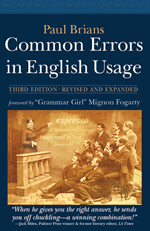A psychologist is a person who has studied the mind and earned a Ph.D. or Psy.D. Although some definitions state that psychologists have undergone clinical training but cannot prescribe medicines, there are research psychologists who are not engaged in clinical work at all, but merely do experiments to discover how our minds work. Some of their work can concern animal rather than human minds.
A psychiatrist is technically an M.D. specializing in the treatment of mental problems who can prescribe medicines. They are licensed medical doctors, and get irritated when they are called “psychologists” and when psychologists are called “psychiatrists.”
Psychotherapist is not a technical term, and may be used by anyone claiming to offer therapy for mental problems. That someone is called a “psychotherapist” tells you nothing about his or her qualifications. But qualified clinical psychologists and psychiatrists can be properly called “psychotherapists.”
A psychoanalyst is a very specific kind of psychotherapist: a licensed practitioner of the methods of Sigmund Freud.
Back to list of errors

BUY THE BOOK!
